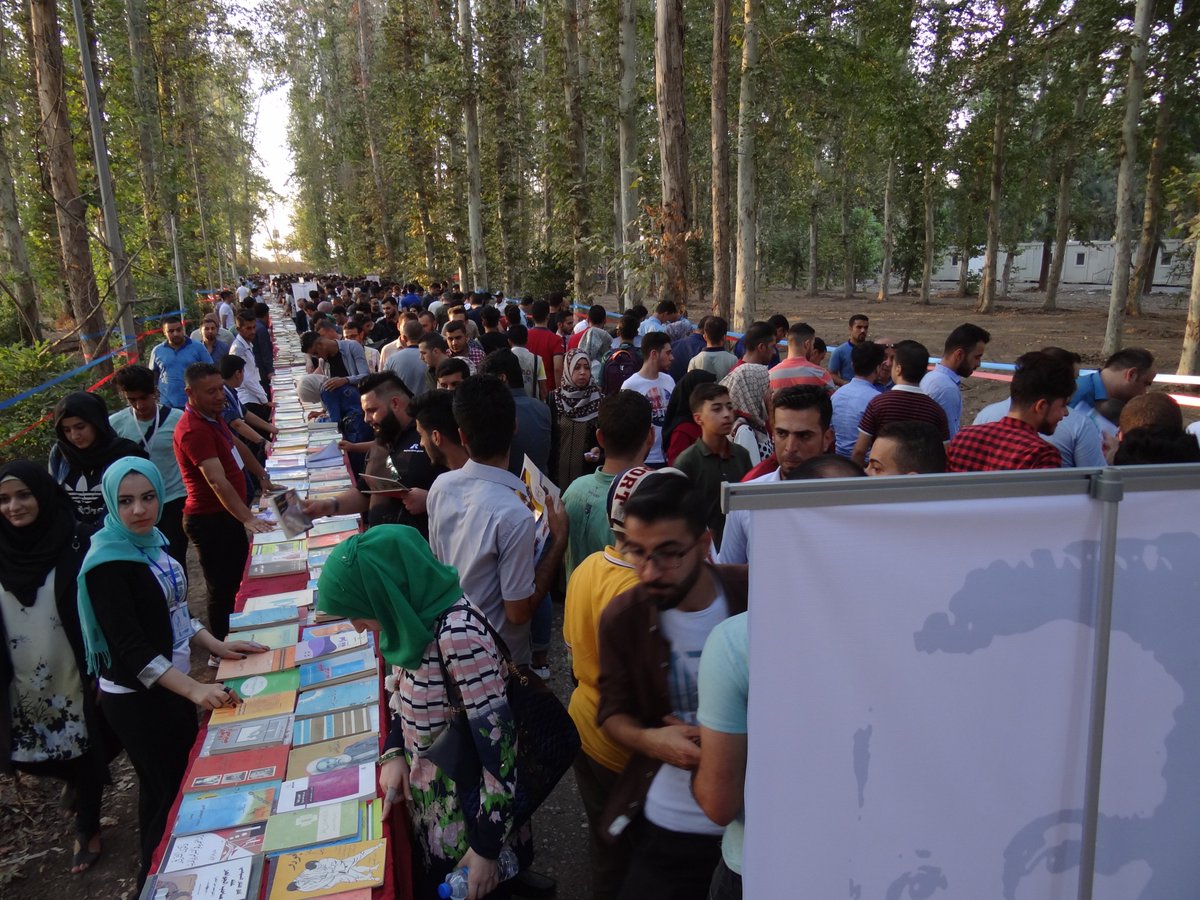Music is back in Mosul, as are books and paintings. With the "Islamic State" (IS) group gone, locals are enjoying their new-found freedom and embracing culture. Will it last?
Judit Neurink reports from Mosul.
 |
| Book festival in Mosul, where thousands gather to chose a book. PICTURE @ALI Y AL-BAROODY (Twitter) |
"We don't value things until we lose them," says Ali al-Baroodi, an English teacher at Mosul University who has become the city's unofficial chronicler, cycling around his liberated hometown taking pictures of the damage and the rebuilding process. "Last year's liberation of eastern Mosul from Daesh was like a second birthday for me."
And not just by IS. The repression began soon after the US invasion in 2003, when radical Muslims began to gain more and more ground in the city. "IS is like a ghost — you don't see it, but it's there, secretly collecting data on us for when they return," al-Baroodi told DW. "They ruled in the shadows from 2005, and openly after 2014. It is not easy to end their existence. Under Daesh, I died 1,000 times a day. So the first thing Mosul needs to do is lose its fear."
And while his father keeps warning him to be more careful, the young photographer feels it's his mission to record developments in his city. He compares the situation to the first years after 2003, when the Iraqis celebrated the change and the freedom they had longed for — until Muslim radicals appeared on the scene to fight the Americans, putting a rude end to the positive changes. But this time, many in Mosul feel that the change process must be allowed to continue.
Marwan Tariq, who teaches at Mosul University's Arts Institute, agrees that progress has been made: "After Daesh, the situation is already better than before they arrived."
Read on here
No comments:
Post a Comment